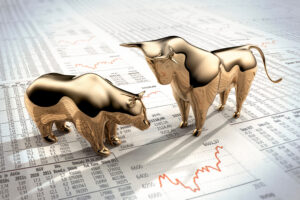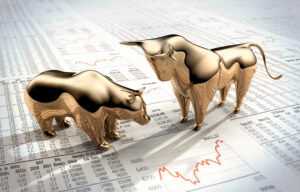Since the Great Recession, investors have gotten used to very low interest rates and extremely accommodative monetary policy. This remained true even as signs of economic recovery and expansion began to take hold. That environment appears to be changing, and bond yields have now spiked to the point where they have caused an equity market selloff.
Bond market bulls would view this backdrop as a sign that the global economy cannot withstand higher borrowing costs and the Fed and other central banks are being too aggressive. We take the opposite view and believe the time of emergency low rates has long since passed. We also believe we are more than overdue for a higher interest rate environment considering the strength of both real and nominal economic growth.
This is not to say that the yield increase we have seen over the past month is likely to continue. The recent equity market weakness should slow down rate increases, although we don’t expect much more downside in rates and yields. Economic growth is continuing to improve, and we expect inflation to climb modestly. Likewise, we expect the Fed to continue raising interest rates unless we see a significant financial blowup. If the Fed moves too slowly, it risks causing a more significant rise in inflation. At this point, we think the Fed should be more concerned with the possibility of the economy overheating than a potential growth slowdown.
We think stocks could likely be messy for a while longer. But we think prices should begin to rise again over time. The key will be for investors to believe that rising yields and higher interest rates are not restricting economic growth. We also think we may need to see some combination of an easing in U.S./ China relations, a recovery in global manufacturing levels or less volatility in the bond market for equity sentiment to improve.
In any case, we do not believe economic or corporate fundamentals have deteriorated meaningfully. In other words, we see no sign of the monetary or economic conditions necessary to end the current cyclical expansion. It is important to remember that economic cycles do not end simply because they are getting old. A recession needs a catalyst. In the current environment, our best guess is that the culprit will eventually be rising inflation that forces the Fed to tighten policy enough to slow economic growth. We don’t expect that to happen any time soon, however. We expect inflation pressures will rise over the next 12 to 18 months, and the Fed still has more room to raise interest rates.
As such, we expect stock prices to climb unevenly from here and believe equities will outperform bonds over the next year. From a positioning standpoint, we think it makes sense for investors to maintain neutral or higher weights to equities within their portfolios and continue to believe that bonds will remain vulnerable to further irregular increases in interest rates.








